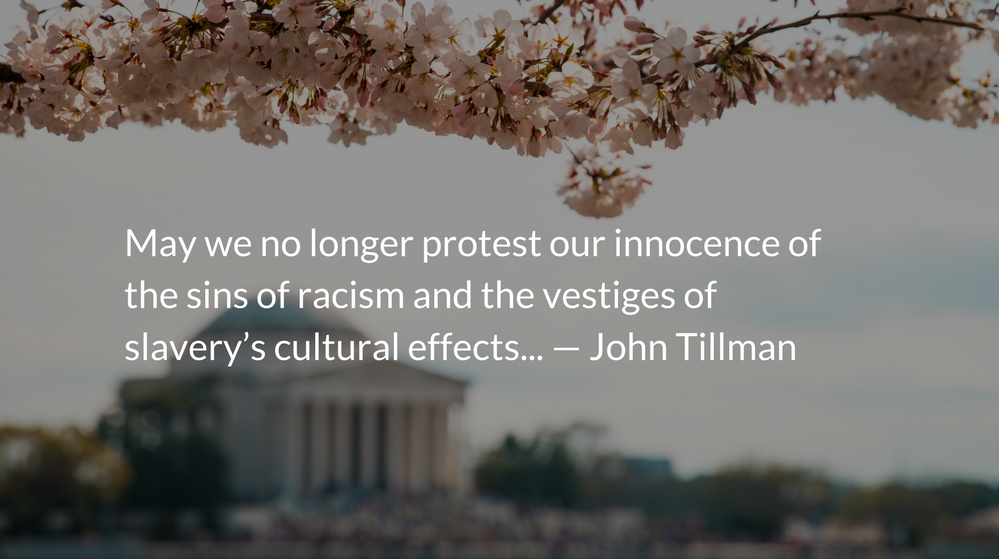Links for today’s readings:
Read: Joshua 9 Listen: (3:46) Read: Ephesians 1 Listen: (3:10)
Scripture Focus: Joshua 9.24-27
24 They answered Joshua, “Your servants were clearly told how the Lord your God had commanded his servant Moses to give you the whole land and to wipe out all its inhabitants from before you. So we feared for our lives because of you, and that is why we did this. 25 We are now in your hands. Do to us whatever seems good and right to you.” 26 So Joshua saved them from the Israelites, and they did not kill them. 27 That day he made the Gibeonites woodcutters and water carriers for the assembly, to provide for the needs of the altar of the Lord at the place the Lord would choose. And that is what they are to this day.
Romans 11.17-22
17 If some of the branches have been broken off, and you, though a wild olive shoot, have been grafted in among the others and now share in the nourishing sap from the olive root, 18 do not consider yourself to be superior to those other branches. If you do, consider this: You do not support the root, but the root supports you. 19 You will say then, “Branches were broken off so that I could be grafted in.” 20 Granted. But they were broken off because of unbelief, and you stand by faith. Do not be arrogant, but tremble. 21 For if God did not spare the natural branches, he will not spare you either.
22 Consider therefore the kindness and sternness of God: sternness to those who fell, but kindness to you, provided that you continue in his kindness. Otherwise, you also will be cut off.
Reflection: Grafting in the Gibeonites
By John Tillman
The Gibeonites didn’t originate the phrase “If you can’t beat them, join them,” but they lived it.
I was first introduced to this aphorism when Yosemite Sam, representing the British army, could not defeat Bugs Bunny, representing the American revolutionaries, and determined to join the revolution instead.
The NIV says the Gibeonites “resorted to a ruse.” The NASB says, “acted craftily” and the NLT, “resorted to deception.” (Joshua 9.4) The translated phrase has negative aspects of cunning and deception, however, it can also mean prudence, discretion, or even wisdom.
Gibeon is the third of three stories of deception or betrayal in the early chapters of Joshua. Rahab betrays Jericho, Achan betrays Israel, and the Gibeonites betray Canaan’s other kings. These stories illustrate what Paul would later write about the “tree” of Israel—unfaithful branches will be broken off and “wild” branches grafted in. (Romans 11.17-24) Achan is broken off while Rahab and Gibeon are grafted in. As Peter would learn, God accepts from any nation ones who fear him and do what is right. (Acts 10.35)
People sometimes think that the “Old Testament God” and “New Testament Jesus” are two different beings. One is murderous. The other is merciful. One is violent. The other is virtuous. Let not faulty human logic separate Yahweh, Jesus, and the Holy Spirit. They are one. These stories show that they are. The hard-hearted face justice. The repentant find mercy. The proud perish. The humble escape.
The Gibeonites had the right idea, even if they did it in a wrong way. God accepted them, even though they didn’t deserve it, just like Jesus accepts us. Israel had the right idea to accept them, even if they did it for wrong reasons and never fully included them.
There’s probably someone in your life who thinks, like the Gibeonites, they’ll never be accepted by God as their true selves. They don’t know God but they see what is said about him and what is said about them. Perhaps they will just harden their hearts against God, like the other Canaanites hardened their defenses. But perhaps they will come to you, maybe with the wrong reasons, maybe in the wrong way.
If they do, find in your heart the same grace for them that God showed the Gibeonites. Those who come to Jesus in repentance won’t be second-class community members. They will be fully accepted family members.
Remember, you don’t deserve to be grafted in either.
Divine Hours Prayer: The Refrain for the Morning Lessons
Happy are they who fear the Lord, and who follow in his ways!
You shall eat the fruit of your labor; happiness and prosperity shall be yours. — Psalm 128.1-2
– Divine Hours prayers from The Divine Hours: Prayers for Summer
by Phyllis Tickle
Read more: Ask and Keep Asking
By God’s sovereignty, not only the Ephesians but we are included in Christ by hearing and believing the gospel of salvation.
Read more: Becoming Part of the Promise
Rahab the Canaanite prostitute becomes a part of the Abrahamic promise…No situation is hopeless and no person is doomed to destruction who turns to God.



